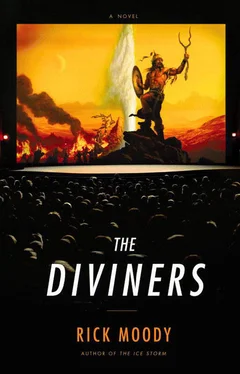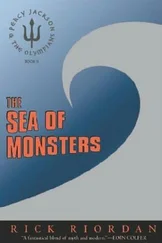Whereupon Minivan will insist that Annabel really do it, really get the sundae as described. Likewise, Annabel has taken entire gross boxes of chocolate bars out of Minivan’s office, per her direction, replacing them with a more dainty jelly bean display. She’s ordered pizzas at ten o’clock at night, multiple pizzas. Back-to-back lunches for Minivan. Followed by drinks, followed by dinner, followed by a separate dessert engagement with some other agent. Annabel has ordered four sides of bacon for Minivan from a room service menu, in the Gallic tongue, because Minivan, lounging at poolside in the south of France, claims her French isn’t up to the task.
Traditional Hollywood fare. Like all those mailroom stories, some of which Minivan is fond of telling herself. The producer, for example, who used to walk around in the parking lot first thing in the morning, checking the hoods of the cars of his employees to see how warm they were. The guy with the warmest hood was insufficiently ambitious. Gluttony, selfishness, megalomania, chocolate addiction, pathological lying, promiscuity, obsessive-compulsive disorder. The world of cinema. And yet there are two reasons why Annabel continues to work for Vanessa Meandro. The first reason is a steadfast if misguided belief in the possibility of tenderness. As Annabel conceives of it, the moment of tenderness is not a theory, but a genuine probability, like democracy in China or a Middle East peace accord. The moment of tenderness is a possibility in all interactions. It is the neutrino of human events. The moment of tenderness becomes ever more predictable, statistically, the worse things get. Bad luck is the catalytic agent for tenderness. The moment of tenderness cannot be resisted forever. Minivan, one day, will have to express kindness, if only by accident. There is no other way to think about the world. The longer Annabel works, the more likely is the moment of tenderness, the more Annabel wants to be present when the inconceivable happens, when the world of light opens in Minivan like a flower. Greatness in the film world happens in inconceivable moments. When the predictable torrents of horror films for teenagers have overspilled the drains and sewers and engulfed the corners of all the sidewalks, then the rain will stop, and the sun will rise, and only Annabel will continue to believe in it, a moment of tenderness.
The existence of the moment of tenderness, however, is in dispute according to all others employed at Means of Production. These hard-core empiricists number exactly four. Another personal assistant, Jeanine, who is responsible for travel arrangements and most of the call logs for Minivan. A development girl, Madison, who once had Annabel’s job and whose hazel eyes are bottomless. A celebrated action film star, Thaddeus Griffin, who is sharing the cost of the office suite with Minivan while he tries to parlay his action film credits into independent film respectability. And the bookkeeper, a middle-aged woman called Lois DiNunzio, who has successfully eradicated all signs of human emotion. These four employees (and the occasional heroin-addicted intern from Tisch School of the Arts) coexist badly within the domain of Minivan and yet they agree on one thing: the complete implausibility of any moment of tenderness. They give Annabel endless amounts of shit for believing in this moment of tenderness. They have each recounted, in whispers, the Christmas-evening harangue from Minivan, when they were called selfish, witless, moronic, and weak. Or, moving from adjectives to nouns, they were called such epithets as coke slut, mannequin, industry whore. For these reasons and others, Annabel’s fellow employees have asserted that the moment of tenderness does not and cannot and will never exist.
Maybe if it were only the moment of tenderness, Annabel would not have stuck it out for five years, having taken the position fresh from the college in western Massachusetts with the experimental curriculum. The other reason to stay is her screenplay. During the workday, Annabel acts out the ingenue roles of Juliette or Justine, while at night she has begun working on a screenplay about the wife of the Marquis de Sade, called Fire Eater. Despite the lack of easy financing inherent in the kinds of projects Minivan favors, she has continued to make great movies. And Annabel knows, eventually, that even if she must be subjected to the very kind of torture that the Marquis visited upon his wife, which includes, in Annabel’s screenplay, experimenting with erotic asphyxiation, penetrating his wife with devices, encouraging others to do so, fucking teenage boys in front of his wife, demanding that teenage boys fuck him in front of his wife, sexually abusing the children of his parish, and forcing his wife to sodomize him, Annabel knows eventually that Minivan will see the light about Fire Eater, and Annabel’s project will fit right into a Means of Production release schedule that in the past has included an entire film made about Charles Manson’s final remarks before sentencing; a film about the last years of the life of Mark Rothko; a film about the arrest of the Weather Underground; a George Jones biopic; and the celebrated Means of Production love story, Offenders, about the schoolteacher, Mary Kay Letourneau, who romanced her middle school student. Offenders had that incredibly moving passage where the teacher and her thirteen-year-old lover go skydiving together, just before neighbors inform on them. Here’s the moment that critics, at least at the alternative weeklies, liked so much, that moment in the trailers when Mary Kay’s thirteen-year-old lover gets ready to leap out of the plane at the behest of their instructor. He has no fear, and the blue sky outside the plane looks almost colorized, a tissue paper cloud here and there. He’s attached to the cable that ensures that the parachute opens properly, and he looks back at Mary Kay, a goofy grin on his face because he’s afraid of nothing. He thinks that the whole world is a professional-wrestling episode. Mary Kay, however, knows what this dive means. Suddenly she’s reaching out to him, but he’s gone, their hands failing to meet, causing her to jump, too, and the plane banks left, and their chutes open, and the sere flatlands of the Northwest are below them, and a married woman has just thrown away her life for a profane love. Never has the wailing of the wind sounded so desolate. The absence of music makes the film more persuasive. Lili Taylor’s finest moment, really.
Annabel knows that a certain rarefied segment of the filmgoing public has exited at the conclusion of every film produced by Minivan determined to overthrow a despot or to work for the legal-aid society or maybe just to make a film. Everyone at her school in western Massachusetts, the one with the free-form curriculum, felt this way. Half of them have trooped through the Means of Production office, it seems, trying to get Minivan to back their documentary on the making of Miles Davis’s Bitches Brew. No? How about a film about the new East Village orgy scene?
The combination of the possibility of tenderness and a series of movies, not one of which cost more then ten million dollars to make, films that saved the lives of fifty thousand college students in the Northeast, this is enough for Annabel. She willingly shows up for work today, to be told by her boss that she looks like an Eritrean refugee. And here is her boss now, moving past Annabel’s desk, and then Jeanine’s, followed, inscrutably, by a Sikh guy in a turban. She drops a bag of Krispy Kreme doughnuts on Annabel’s desk.
“Want me to save these?” asks Annabel, holding the abject bag in her hands.
“Send in DiNunzio. Clean out the empty office. Squeegee the windows.”
To herself, Annabel pronounces the word squeegee as though it is a completely new word. The inexplicable Sikh guy, meanwhile, is smiling the most generous smile she’s ever seen, as though his smile could repair entrenched diplomatic problems. He’s standing in the hall by the sequence of portraits of great contemporary feminists by photographer Miranda Grossinger that Minivan has been collecting. Miranda wants to make a movie, too, and she has therefore been more than happy to improve the decor at Means of Production. The Sikh is leaning dangerously close to the photograph of Avital Ronell. He’s in danger of knocking the photograph off the wall because he’s so full of surprise and delight.
Читать дальше












